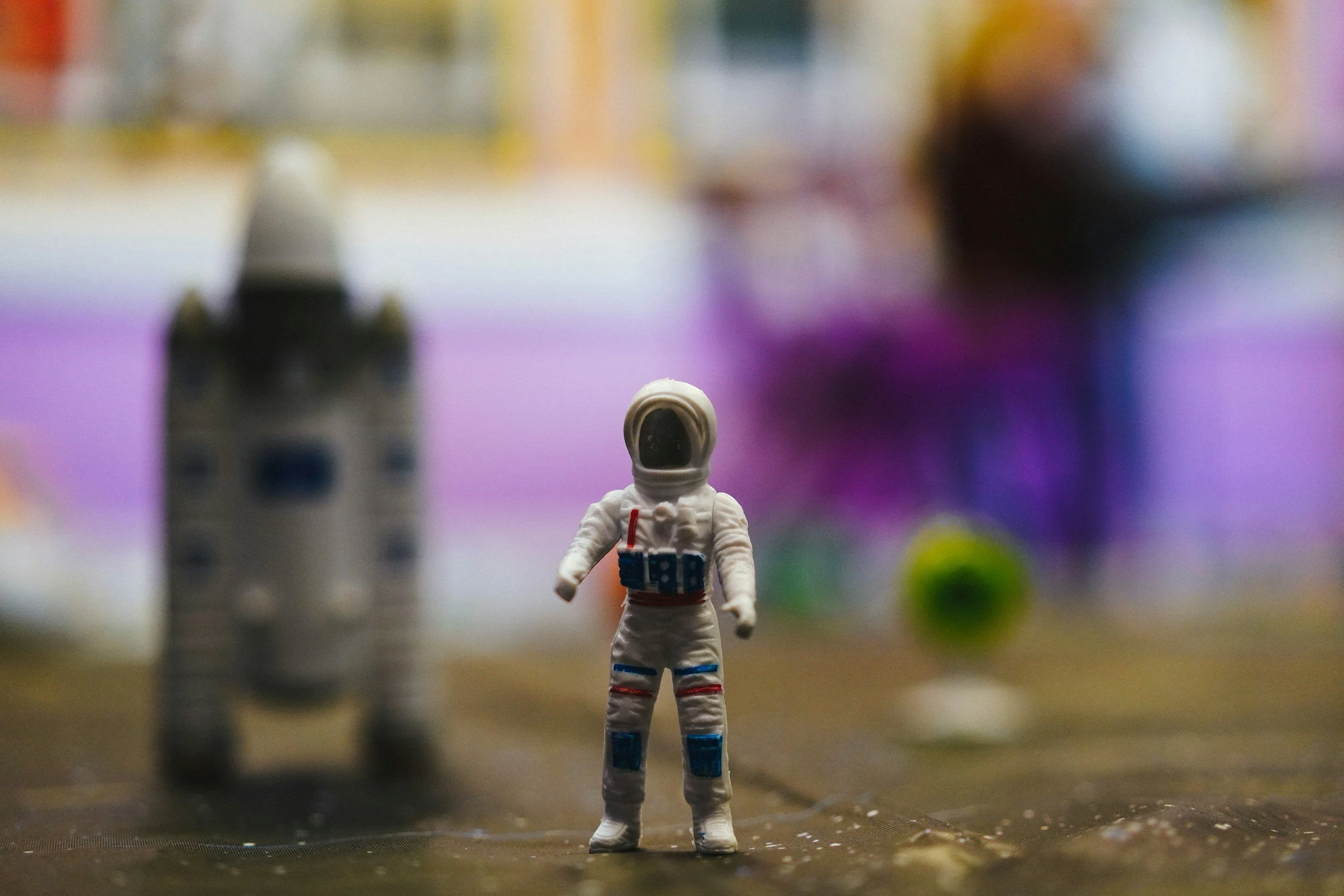Unraveling the Universe
Why Kids Should Learn About Astronomy
From the twinkling stars above to the mysteries of black holes, astronomy is one of the most captivating sciences for young minds. Teaching children about the universe not only ignites their curiosity but also enhances critical thinking, problem-solving, and a lifelong appreciation for science. Understanding our cosmic neighborhood helps kids grasp fundamental scientific principles while inspiring them to dream big and explore the unknown.
How Astronomy Sparks Curiosity and Wonder
Astronomy is one of the few sciences that naturally engages children from an early age. The vastness of space, the beauty of the stars, and the mystery of planets create a sense of awe that fuels curiosity. When kids ask, “Why does the Moon change shape?” or “Are we alone in the universe?” they are engaging in scientific inquiry without even realizing it.
This sense of wonder drives a desire to learn. When children explore space concepts, they begin developing important skills like observation, hypothesizing, and reasoning. Astronomy encourages them to question the world around them, a trait that is essential for future scientists, engineers, and problem-solvers.
Additionally, learning about the universe helps children develop a sense of scale and perspective. Understanding that Earth is just a tiny part of the vast cosmos fosters humility and encourages them to think beyond their immediate surroundings. It also provides a sense of interconnectedness, helping kids understand that scientific discoveries in space can have real-world applications right here on Earth.
Strengthening STEM Skills Through Space Exploration
Astronomy integrates multiple STEM (Science, Technology, Engineering, and Mathematics) disciplines, making it a powerful tool for learning. Understanding celestial mechanics involves physics and math, while studying planets and stars introduces chemistry and engineering principles.
Observing the night sky strengthens children’s ability to recognize patterns and think analytically. Learning how stars form or why planets orbit the Sun introduces fundamental scientific concepts in an engaging way. Space-related experiments—such as building a model rocket or creating a scale model of the solar system—enhance hands-on learning and problem-solving skills.
Astronomy also fosters an early interest in technology. From telescopes to space probes, children gain exposure to scientific tools and engineering marvels. This can spark interest in careers in space exploration, robotics, and other STEM fields. By engaging in astronomy, children also gain insight into how technology plays a crucial role in advancing our understanding of the universe, inspiring them to think about how they might contribute to scientific progress in the future.
Astronomy Encourages Critical Thinking and Problem-Solving
Exploring the universe requires logical thinking, patience, and creativity. Space science presents big questions, many of which still don’t have clear answers. When children learn about concepts like dark matter or black holes, they begin to understand the importance of scientific exploration and hypothesis testing.
By analyzing images of galaxies or tracking planetary movements, kids practice the skills of data interpretation and logical reasoning. Astronomy helps them differentiate between evidence-based conclusions and speculation, reinforcing critical thinking skills that apply beyond science. This discipline also encourages perseverance, as studying the universe often involves trial and error, a valuable lesson that extends into other areas of learning and life.
Moreover, discussing space travel and the possibility of life beyond Earth introduces ethical and philosophical questions. These discussions challenge children to think deeply about humanity’s place in the cosmos and our responsibilities as explorers. It encourages them to consider big-picture issues such as environmental conservation, technological ethics, and the impact of human exploration on other celestial bodies.
Hands-On Astronomy Activities to Try with Kids
Bringing astronomy to life doesn’t require expensive equipment—there are many ways to make space exploration exciting at home or in the classroom. Here are a few fun activities:
Stargazing and constellation mapping: Use a star chart or an astronomy app to identify constellations and planets in the night sky. Observing celestial bodies firsthand provides a tangible connection to astronomical concepts and helps children learn about navigation and ancient cultures that used the stars for guidance.
Build a scale model of the solar system: Help kids understand planetary sizes and distances by using household items to represent celestial bodies. This hands-on activity reinforces math and spatial reasoning while providing a clearer understanding of our place in the solar system.
Create a DIY telescope: Teach children how lenses work by making a simple telescope using magnifying glasses. This experiment introduces basic optical physics and encourages kids to explore how scientists use technology to extend our vision into space.
Simulate craters on the Moon: Drop different-sized objects into a tray of flour to show how meteoroid impacts form craters. This fun and interactive activity helps children understand planetary geology and the forces that shape celestial bodies.
Track the phases of the Moon: Have kids draw the Moon’s shape each night to observe how it changes over time. This teaches them about lunar cycles, eclipses, and the relationship between the Earth, Moon, and Sun, reinforcing scientific observation skills and patience.
Key Takeaways for Families
Astronomy inspires curiosity: The wonders of space naturally engage young minds and encourage scientific inquiry.
Develops STEM skills: Learning about space introduces fundamental concepts in physics, math, and engineering.
Enhances critical thinking: Space exploration challenges kids to analyze data and think logically.
Encourages big-picture thinking: Understanding our place in the universe fosters humility and perspective.
Accessible to all: Simple stargazing activities and DIY experiments make space learning fun and interactive.
Inspired to Take Action?
Help kids unlock the mysteries of the universe and fuel their curiosity about space. Here are three simple ways to get started:
Encourage skywatching: Take time to look at the stars and discuss what you see.
Integrate space learning into play: Use books, puzzles, and videos about astronomy to make learning fun.
Join Global Galactics: Discover interactive resources like The Spark at the Center of the Universe that make astronomy engaging and educational.
By teaching kids about astronomy, we inspire them to dream, explore, and question the world around them. The universe is an open book waiting to be read—let’s help young learners start their journey among the stars!
ReferencesJourney Homeschool Academy. (n.d.). 10 reasons to teach your kids homeschool astronomy. Journey Homeschool Academy. Retrieved from https://journeyhomeschoolacademy.com/10-reasons-to-teach-your-kids-homeschool-astronomy/The Average Scientist. (n.d.). Why astronomy could be the most important thing your kids ever learn. The Average Scientist. Retrieved from https://theaveragescientist.co.uk/2023/05/16/why-astronomy-could-be-the-most-important-thing-your-kids-ever-learn/Youth Development Insight. (n.d.). Astronomy as a tool to broader learning. Youth Development Insight. Retrieved from https://blog-youth-development-insight.extension.umn.edu/2024/07/astronomy-as-tool-to-broader-learning.htmlERIC. (n.d.). Teaching astronomy in kindergarten: Children's perceptions and projects. ERIC. Retrieved from https://files.eric.ed.gov/fulltext/EJ1309271.pdfNASA ADS. (n.d.). Teaching astronomy? Why and how? NASA Astrophysics Data System. Retrieved from https://adsabs.harvard.edu/full/2006JAVSO..35..248PAstronomy Clubs. (n.d.). Why should I teach my child astronomy? Astronomy Clubs. Retrieved from https://www.astronomyclubs.co.uk/astronomy-for-kids/why-should-i-teach-my-child-astronomyEducation Week. (n.d.). Stargazing. Education Week. Retrieved from https://www.edweek.org/teaching-learning/stargazing/1998/02Novak Djokovic Foundation. (n.d.). Help your child to learn and play: What astronomy has to do with children's imagination. Novak Djokovic Foundation. Retrieved from https://novakdjokovicfoundation.org/help-child-learn-play-astronomy-childrens-imagination/





